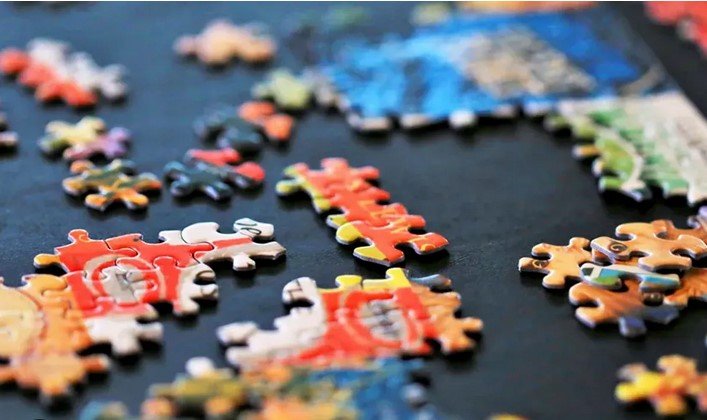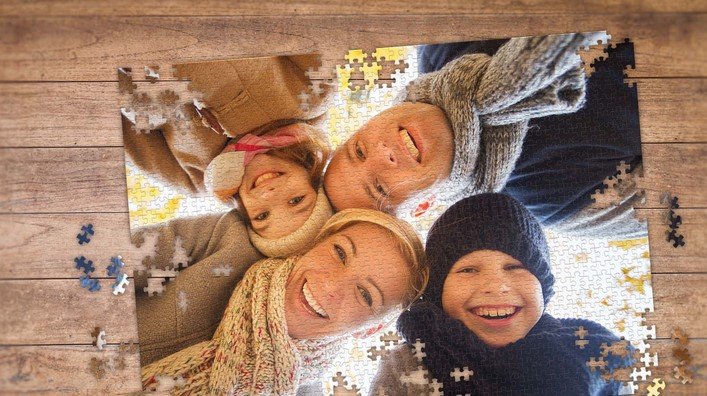How to choose the perfect jigsaw puzzle is a question many puzzle enthusiasts ask. The right puzzle can provide hours of enjoyment, while the wrong one may lead to frustration. Whether you are a beginner or an experienced puzzler, selecting the ideal puzzle involves considering factors such as difficulty, image appeal, and puzzle size. In this post, we will guide you through the process of choosing the perfect jigsaw puzzle for your needs.

Consider the Puzzle’s Difficulty Level
The first step in how to choose the perfect jigsaw puzzle is determining the level of difficulty. Jigsaw puzzles come in a wide range of difficulty levels, from simple puzzles with just a few pieces to complex puzzles with thousands of pieces. It is important to choose a puzzle that matches your skill level.
For beginners, start with puzzles that have fewer pieces. Puzzles with 300 to 500 pieces are often ideal for newcomers. As you gain experience, you can gradually move on to puzzles with more pieces or more intricate designs. On the other hand, if you are an experienced puzzler, consider tackling more challenging puzzles with 1000 pieces or more. The more pieces a puzzle has, the more time and concentration it will require to complete.
Choose an Image That Appeals to You
Another key factor in how to choose the perfect jigsaw puzzle is the image on the puzzle. The visual appeal of the puzzle will play a big role in your overall enjoyment. If the image doesn’t interest you, the puzzle may feel more like a chore than a fun activity.
There are many themes to choose from, such as landscapes, animals, art, or famous landmarks. Think about what kind of images captivate you. Do you enjoy the beauty of nature, or are you drawn to historical landmarks? Some people prefer puzzles with bright colors and simple designs, while others enjoy more complex or abstract images. Choose an image that excites and inspires you to make the puzzle-solving experience more enjoyable.
Consider the Puzzle Size
The size of the puzzle is another important factor to consider when choosing the perfect jigsaw puzzle. Puzzle size refers not only to the number of pieces but also to the actual physical dimensions of the puzzle. Larger puzzles may require more space, so it is essential to ensure you have a suitable area to work on it.
If you are limited on space, opt for smaller puzzles, or choose a puzzle that can be completed in sections and then joined together. On the other hand, if you enjoy tackling large puzzles, make sure you have enough room to spread out all the pieces and work comfortably. Also, consider the frame of the puzzle once it’s complete—some people prefer large puzzles that they can display on their walls.
Consider the Material and Puzzle Quality
When selecting the best jigsaw puzzle, consider the material and overall quality of the puzzle. High-quality puzzles are typically made from thicker cardboard or wooden pieces that fit together easily and hold their shape. The puzzle should feel sturdy, and the pieces should not bend easily. Low-quality puzzles may have flimsy pieces, which can make them harder to assemble and frustrating to work with.
It’s also essential to check if the puzzle has a good image print. The colors should be vibrant, and the image should be clear. Additionally, ensure that the puzzle’s pieces are uniform in shape and fit together seamlessly. Opt for reputable brands that are known for producing durable, high-quality puzzles.
Think About Puzzle Accessories
The final consideration in how to choose the perfect jigsaw puzzle is the availability of accessories. Some puzzles come with special features such as puzzle mats or storage boxes that help you organize pieces and keep the puzzle intact during assembly. If you plan to work on large puzzles or store them for later, these accessories can be a helpful addition.
Puzzle mats provide a surface where you can work on your puzzle without worrying about losing pieces or damaging the puzzle. They are particularly useful for larger puzzles. Puzzle glue kits are also available for those who want to preserve their completed puzzles. These accessories are worth considering if you plan to solve puzzles regularly or wish to display your completed work.
Conclusion
In conclusion, knowing how to choose the perfect jigsaw puzzle depends on several factors, including the puzzle’s difficulty level, image appeal, size, material quality, and available accessories. By taking the time to consider each of these aspects, you can ensure that you select a puzzle that matches your skill level and personal preferences. Whether you’re a beginner or a seasoned puzzler, the perfect jigsaw puzzle is waiting for you to discover. Happy puzzling!



